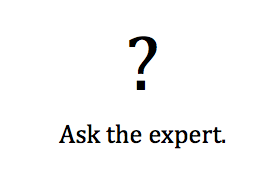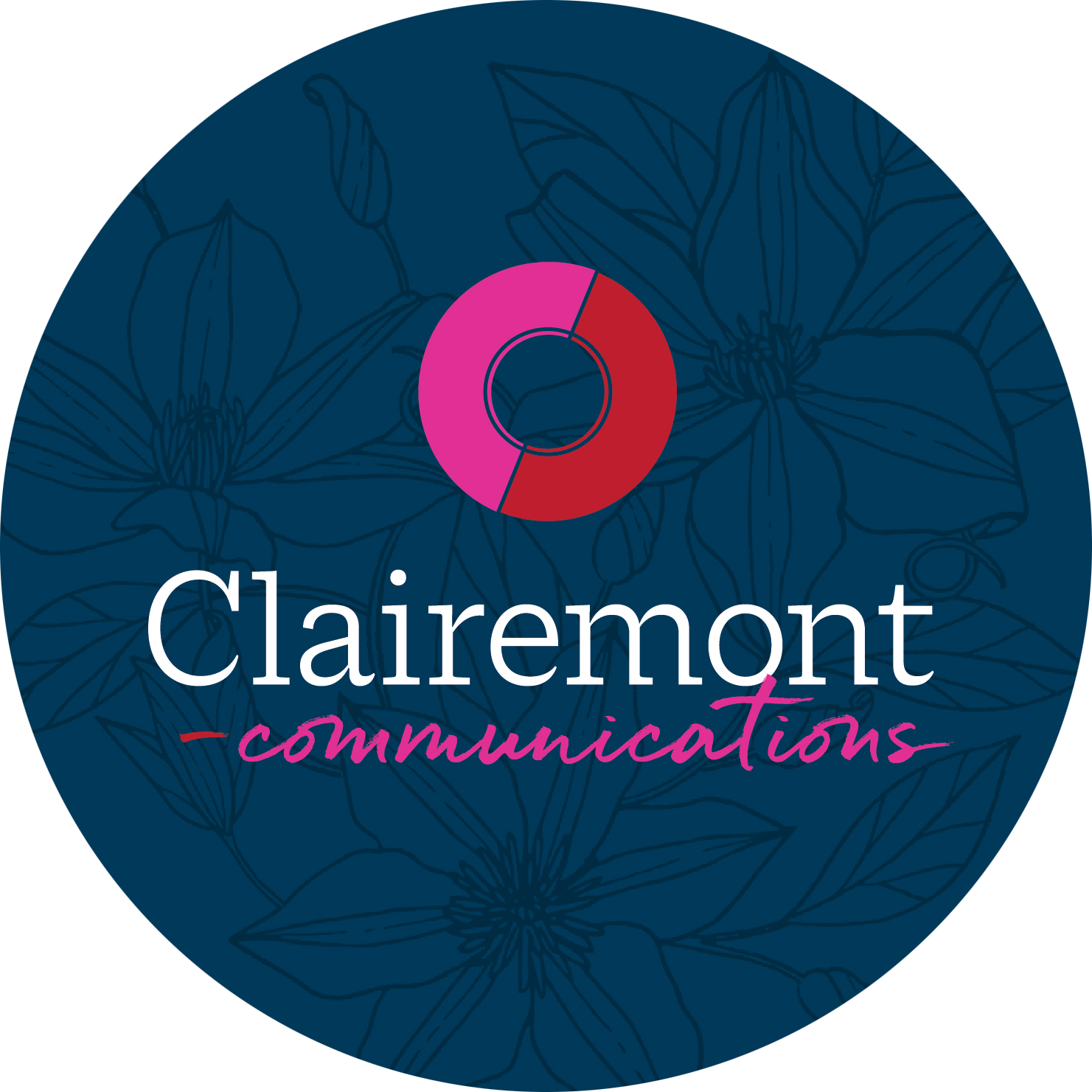 As the recent co-chair of PRSA‘s Counselors Academy 2012 conference, I was closely involved with planning the content for the conference. With social media as a growing part of what PR agencies offer, I found myself in discussions with conference chair, Martin Waxman, about the social media leaders, authors and “experts” we should invite as speakers. I also found debating with other agency owners and senior management about the definition of social media expert.
As the recent co-chair of PRSA‘s Counselors Academy 2012 conference, I was closely involved with planning the content for the conference. With social media as a growing part of what PR agencies offer, I found myself in discussions with conference chair, Martin Waxman, about the social media leaders, authors and “experts” we should invite as speakers. I also found debating with other agency owners and senior management about the definition of social media expert.
This certainly isn’t a new discussion, and asking the question of what is a social media expert is sorta like asking who bakes the best cake. Like in any industry, we see self proclaimed experts popping up everyday. It isn’t hard to setup a Facebook page for a business. Once you’ve done it, does that make you a social media expert? Some say so. But how does it fit into the overall marketing strategy? Are you ready for it to be a customer service channel? How do likes relate to sales? Hmmm. Maybe not so simple. And that’s just one example.
As for the conference, we were delighted to host several speakers who are truly regarded as experts, including Marcus Sheridan. I loved hearing his story because he was a pool guy who turned to blogging to save his business in a down economy. Not only did he save the company, sales exploded and a new career as The Sales Lion was born. Similar to Chicago Cabbie who I blogged about last year after learning how he is using Twitter, this goes to show you that ANY business can benefit from social media.
Since I liked the presentation Marcus gave so much, I’ve been reading some of his blogs, and one called The 3 Essential Qualities of a TRUE Social Media Expert caught my eye. I agree that his three qualities can define a social media expert. They include: 1) The “rules” are always changing, and every industry is different. 2) They freely admit they are not for everyone. 3) They can put their money where their mouth is.
Going hand-in-hand with #3, I would add the point that the social media expert is the right kind of expert for you/the job. Can you be a social media expert without being an author, keynote speaker or even known for social media? YES! Yes, yes and yes. So what are you seeking? If you want a social media expert to speak at an event, the author or keynote speaker will likely be a good fit. If you are looking for a person or a team to analyze your business, build a social media strategy and work with you on long-term goals and execution, the author or speaker might not be your best choice.
The reason being, if the person is promoting a book or traveling on a speaking circuit, his or her celebrity status might be attractive, but you must ask if as the client, you will get the time and attention you deserve. Many people who have been successful first in helping businesses with social media as part of a larger communications strategy have teams of people back at the office. So if you are attracted to the celebrity expert type, ask to meet the team to see if you can get a mix of what you like about the author/speaker and the ongoing client service you’ll need from the team.
Another option is to consider an agency or consultancy that offers social media along with other services. In total transparency, that is what Clairemont is. Let me explain a bit about that, and then I’ll admit the lesson that I learned from Marcus as my big takeaway from hearing him speak. When I launched Clairemont nearly two and a half years ago as a new Raleigh PR agency, it was my mission to blend traditional communications and media relations. I left an amazing position at an international PR agency considered to be the world’s largest PR firm. The internal resources that came with working with a company that size were often beneficial to the clients I managed each day, but as social media started to prove to have valuable applications to business, I had some concerns. (And yes, I hear you asking now all the questions about a big PR firm vs. a small PR agency… my thoughts on that at a broader level coming soon!)
I remember being the first person in my office other than interns to be on Facebook, and they helped me along. It might have still been called The Facebook at the time. I had already started a personal blog, and Twitter soon followed. My team had won the trust of a client through strategy, messaging and media relations work, and we got the green light to get them on Facebook. The client didn’t even know what Facebook was, but we were off and running! Other opportunities and ideas quickly followed. The part that concerned and confused me? When new social ideas were discussed, there was always the suggestion of needing to bring in digital experts from larger offices in the network. Now let me say, I had worked with these folks and they were EXCELLENT. Many of them knew how to code and build widgets and things our account team didn’t. I’m not saying this model is wrong. It can be perfect… again, depending on the needs.
What I am saying is that that is where my personal philosophy on where social media lives was born and it is this: if you work at a PR agency, you need to understand social media. If you are on the account team, you need to understand how it fits into your client’s strategy. You need to be able to generate ideas around it, track how your clients’ competitors are using it and be equipped to push (in a nicely assertive way, of course) your clients to embrace it in ways that will help the bottom line. And THAT is what we practice at Clairemont.
So, back to the question of what is a social media expert. Is the Clairemont team made up of social media experts? Yes, it is. We — the very same people — are also PR pros which by definition (Paul Holmes recent post says it best) encompasses several things including strategists, publicists and let’s face it, business consultants. Since we began in January of 2010, more than 60 percent of our revenue has been generated from the social media programs we devise and manage for our clients. I’m proud of this fact. I’m also proud to say that we still start in the same place and that is an understanding of the client’s business and objectives. We thoroughly enjoy conversations with clients and prospects that debate if a Facebook page is needed… should we try Twitter… should we link Facebook to Twitter (no, no, no, I’m begging you, please no!)…is Pinterest right for us, and so on.
Now, back to what I learned from Marcus. One of the things is to tell your secrets, and I definitely feel like this is one of them. We’ve been quietly working away incorporating social media into our clients’ marketing strategies, even producing award-winning campaigns. But we haven’t really talked much about it. Shame on us! As a new and small (but growing!) agency, we’ve spent more time on our clients’ social media channels than our own. We’re making a commitment to change that, so please, let us know what you want to hear from the Clairemont team!
Do you have a social media or other PR question? We’d love to know what questions you have and how we can help provide the answers to your questions! Please feel free to leave them in the comments section of this post. Thank you!

I like the Goldilocks metaphor. Paul Holmes points made me appreciate the history and depth of our profession and how publicity just took centre (Cdn) stage for so long. I’m glad that’s changing.
Thanks for the shout-out Dana! You make some great points about hiring a social media consultant – or any consultant for fit, expertise, ideas… but not because they have a big name brand. I think the same is true of agencies. I’ve often seen more creative (and hard) work from entrepreneurial boutiques like Clairemont than from multinationals. Because we put a high value on quality and excellence and not just the bottom line (though that’s a consideration too).
I also think the Paul Holmes piece is one of the best long-form definitions of PR that I’ve seen.
The Goldilocks of Social Media, I like to say! I really loved what Paul wrote and found it to be great validation for those of us who embrace our traditional communications backgrounds while evolving our talents, skills and service offerings.